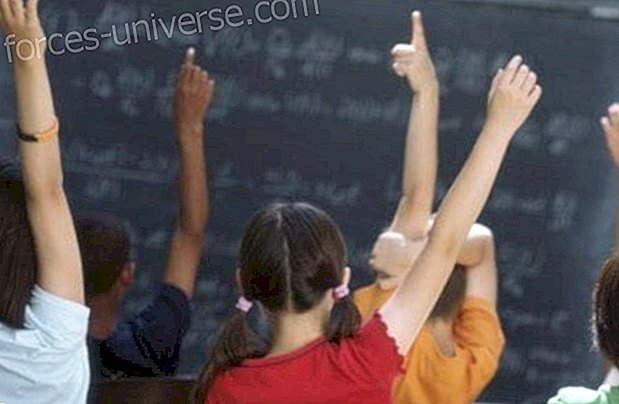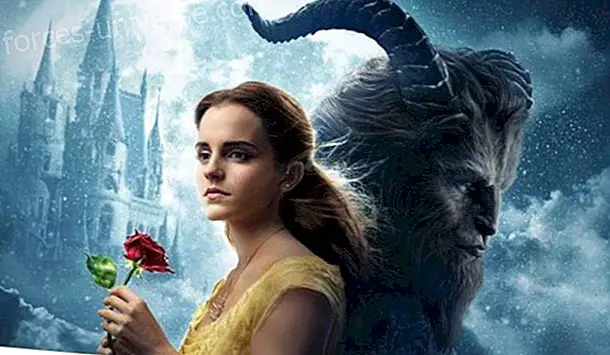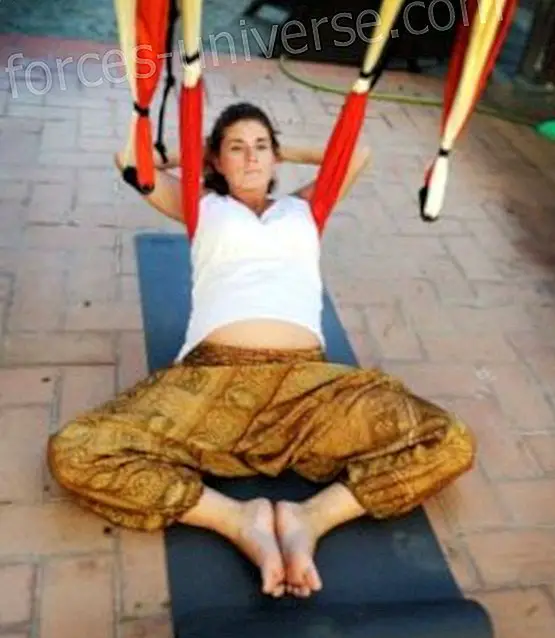Freedom and education in Krishnamurti's perspective. Part 2: The relationship of freedom with education
- 2017

Now that we have discussed some of the most important aspects of what freedom is not, with respect to education, we can begin to analyze the relationship between freedom and education.
To begin with, it is necessary to clarify that Krishnamurti (and, I presume, the majority of the readers of this article) is not interested only in freedom education . A person can be in the least free situation (as in a community conditioned on fundamentalist Islam within a fascist concentration camp, to set an absurd example) and still get lessons on freedom. When Krishnamurti and most of the holistic educators say they are interested in letting people know about freedom, they are saying that people should do something more than learn about it; Learn from her.
From this issue, the question necessarily arises: What does it mean to know something like freedom? Is it the same as knowing, for example, the names of the planets?
If knowing freedom is not the same as knowing the names of the planets, what is the difference? To keep this as simple as possible, we can simply say that it can be argued that there are categories of things (things like love, responsibility, courage, or even how to ride a bicycle). Whose understanding requires an exceptional additional component. Since these things are not accessible through concepts, abstractions or representations alone. This is the kind of learning that Carl Rogers and Abraham Maslow talked about when they talked about intrinsic learning . Distinguishing it from `` extrinsic learning ''.
They interpreted extrinsic learning as an accumulation of impersonal associations or information (necessary to learn some things, such as the names of planets). While intrinsic learning was for them a very personal internalization of information or events (necessary to learn certain things such as responsibility, freedom or how to ride a bicycle). When we look at these two very different types of knowledge, a question necessarily emerges What is education for ? If education is mainly for the accumulation of information and the acquisition of degrees, extrinsic education is sufficient.

Krishnamurti insisted, however, that education should be focused on cultivating the whole human being.
We have put too much emphasis on examination and getting good grades. This is not the main purpose of the schools he founded. Krishnamurti went on to say that with this erroneous emphasis on obtaining degrees, "the freedom to flourish would gradually wilt."
For Krishnamurti, " cultivating the human being in its entirety" and " flowering " required what he continually called "the awakening of intelligence." This refers to the ability to discover the truth, find meaning and values and live with a certain "divinity." We will return to the topic of finding the truth, meaning, values and divinity a little later. But these concepts need to be introduced here. Since many writers (including Krishnamurti) insisted that acquiring those qualities requires more than extrinsic learning. Intrinsic learning is required.
Interestingly, there is a growing number of people who believe that even for the relatively simple goals of making a living and becoming a good citizen, intrinsic learning is necessary. This generates questions about how people develop, and what is the relation of freedom to development processes .
We need to briefly mention the old historical notion that nature is dark, animalistic, dangerous, sexual, impulsive and vile. Another name of the devil, in fact, was that of "the prince of this world." And what is sacred rises above nature. It is about natural.
Part of this notion is that children are closer to nature, until they are corrected by religion and society. And just like animals, they are inherently sinful . And their impulses must be contained until these children rise above their own nature. This has justified for years taking away their freedom and, quite brutally, saving themselves from their lower self. We are not going to argue against these notions here because we think that their degree of atavism is understood. Moreover, these notions are not an important part of most modern societies. Well, yes, but in a somewhat more attenuated way. In addition, they will be set aside because we assume that most readers do not think so.

However, there is another notion of development that is even more widespread. And that is equally prejudicial for any attempt to educate freely.
This notion of development comes from Plato. And, in a very simplified way, he maintains that the mind develops according to the knowledge it acquires. According to Plato, after a certain number of complex knowledge is acquired by the child's mind, the mind develops the ability to abstract with that knowledge.
Some kinds of knowledge are better for this than others. Plato exposed the virtues of mathematics as a knowledge particularly well adapted to this process. Developing the best mind is achieved by acquiring the various forms of knowledge appropriate to form abstractions . Because it is from abstractions that a person finds the truth.
From this it can be deduced that the point of a curriculum is to present such knowledge in increasingly elaborate ways to achieve a mind capable of creating abstractions that can see the truth.
In many approaches to modern education, it can be argued that this is fundamental to thinking . For our purposes, however, the important thing is that the nature of people is considered determined by the nature of their mind. And the nature of your mind is determined from the amount of knowledge it accumulates. Contrary to this, there is the notion of development proposed by Rousseau. Same that has been adopted by many holistic schools. For Rousseau, the nature of our minds is determined primarily by nature, not by knowledge. He argued that we have three main sources of development or education. Nature. The man and the things. The internal development of our faculties and our organs is the education of nature.

The use they tell us to make of this development is the education of men. And what we gain from our own experience about the objects that affect us is the education of things.
The education that comes from nature is beyond the control of people. And that which comes from things is in our control only in certain aspects. So only the education that comes from man can be completely determined by the teacher. If the three sources of education are in harmony That Rousseau considered necessary for the harmonious development of people- then they would have to follow the development of nature because it is the Only beyond our control.
This means that teachers should pay attention to each child individually. And give lessons that are in accordance with their idiosyncrasy and natural development . A superior task of the teacher is to watch and learn from the ever-changing child. And above all, do not interfere with the nature of the child.
Because it is a sacred reflection of his being. According to Rousseau's notion of development, the mind, like the body, goes behind its natural and inherent correct development process.
Just as what the body ingests does not determine the nature of the body (because as long as it is relatively healthy it still has the normal parts of all bodies), so what the mind acquires does not determine its nature. This is exactly the opposite of Plato's vision. In Rousseau's development model we have the first driving reasons to understand the need for children to be free. And not only that they learn things.
A child should be given the maximum possible freedom . So that it can develop according to its nature. And in this way the teacher can discover the nature of his idiosyncrasy. And give lessons according to her.
Rousseau was also aware of the conditioning problems we discussed earlier. And for him, giving the child the greatest amount of freedom didn't mean giving him all the permits.

He equated giving a child complete freedom by planting a bush in the middle of a path and expecting it to grow naturally. Society would simply pass over it. And it would destroy it. For this reason, Rousseau talked about giving children a " well-regulated freedom ." Or freedom that was real. Not just a product of conditioning. But keep them safe. Contrary to Plato, Rousseau felt that a child is not in danger if he learns what he wants. And learn when and how to learn. Learning to learn, or learning goal, is just considered the important part of knowledge.
However, this " learn to learn " is usually misunderstood. How to "learn to learn" what the teacher wants the student to learn.
This can be, however, a violation of a fundamental aspect of what it really means to know something. That is, find its own meaning.
Just as it can be argued that there are differences between learning something and experiencing and learning from abstractions, it can also be argued that there is a big difference between seeing the meaning of something, and telling us the meaning of that something.
It is the difference between the meaning that is made and the meaning that is received. " Understanding " has been a frequently described word in terms of making connections and seeing distinctions. It is said that intelligent people are the ones who see similarities where others see differences. And that they see the differences where others see only similarities. In both cases, it is the creativity of their actions that distinguishes them. A person looks or does, does not receive or accept. Krishnamurti was constantly imploring people who did not simply accept or agree with what he said. The important thing was the act of finding oneself.

It is quite evident that a person cannot learn to see for himself or to make his own connections if he has been told exactly where to look and what to find when looking there.
Unfortunately, that is exactly what modern education does. There is usually also a very clear indication of what is the acceptable rate at which a person must absorb the given material. If the student's absorption rate is less than expected, then the student is labeled as weak. And if its speed is greater, then the student is labeled as brilliant. However, at no time is it suggested that each student has a different learning rate. Different sources of material and different inclinations. Furthermore, it is never suggested that it is a good thing for the student to discover their own learning rhythm.
This, regardless of the value that people attribute to the learning goal . What is also commonly overlooked is that a person's learning about what he finds meaningful and that person's learning pace for different types of material can be an important aspect for the student to learn something about himself. Probably the reason why this is ignored is that the goals of modern education are different. If education is to acquire information, what the person finds important and the range of their learning of different types of knowledge is of little importance.
However, if education considered self-knowledge as a central pillar of itself, then these two issues would be of great importance. According to the long list of respected education analysts. Including Rousseau. Pestalozzi Froebel Jung Maslow. Rogers Krishnamurti himself. The fact that a person makes their own connections is essential. That way people discover their deepest interests. As a result, they discover something important about themselves.

There will probably be a general consensus one day about the fact that it is good for people to have the opportunity to discover their true interests.
A similar consensus is less likely to be reached on the importance of people building their own meanings . Since the individual meanings could be in conflict with those previously established.
What will be truly difficult for consensus to exist is the fact that, in order to discover interests and meanings, freedom is necessary. And these are one of the main reasons that the aforementioned authors gave such importance to freedom . They felt that if you tell a child, these are the right connections to make to understand this issue.
And this is what really matters, you are telling them simultaneously the different connections you make to this one are wrong.
And, if you tell a child “this is important. This is something you must learn, ”you are saying simultaneously.“ Your interests that are different from this are not so important. ” This brings us back to the origins of the word freedom. Which is where we started, and its relationship with love. Krishnamurti, in a talk with children in one of his schools, said in 1954 that " love for something for itself is freedom."
Do not miss the third part of this interesting article.
TRANSLATOR: Kikio, editor in the big family hermandadblanca.org
To know more:
Education and freedom in the perspective of Krishnamurti. Part 1: The impediments of freedom
Krishnamurti's reflections on education as a religious activity (Part one)





